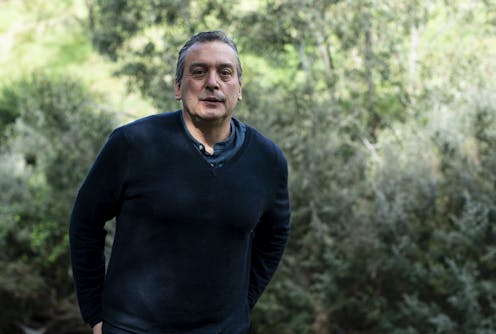Christos Tsiolkas's new novel celebrates a quiet ethics of care in a culturally noisy world
- Written by Jessica Gildersleeve, Professor of English Literature, University of Southern Queensland

Christos Tsiolkas’s eighth novel, The In-Between[1], is a work of social realism set in the immediate present – a return to the form and style of some of his most popular novels.
This follows his experiment with cinematic techniques and authorial presence in 7 ½[2] (2021), and the significant historical shift of Damascus[3] (2019), which was based around the gospels and letters of St Paul, and focused on characters one or two generations from the death of Christ.

















